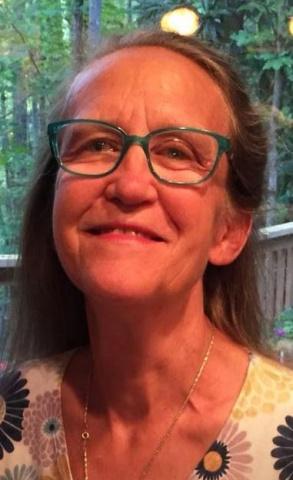
For patients living with memory disorders, life requires “adjusting to the new normal,” sometimes even on a daily basis. Social worker Jennifer Sosensky, MSW, LCSW, helps patients at Duke find the resources and strategies to help patients and their families make these adjustments. In her “Spotlight” interview, Sosensky talks to us about why she became a social worker, her 15 years at Duke, and the resources available to patients with Alzheimer’s disease and related conditions.
What are your responsibilities within the Neurology Department? What does your average work day look like?
As a clinical social worker, my responsibilities include finding/providing resources such as patient/family educational materials, and support groups to patients and their families. I also help patients and families adjust. In chronic illness, we often talk about "adjusting to the new normal." This means something different in memory disorders, which can be a constantly moving target, and changes the personality of the patient as well as physical health. Also, "the new normal" in memory disorders can change from day to day.
How did you decide to become a social worker?
I was always the person that others came to for support and advice when something was difficult in their lives. The amazing thing about the field of social work is that you can do so many different things as a social worker; direct service as a medical social worker, a school social worker, child welfare; research; forensic, psychotherapist. And the list goes on ...
How did you decide on coming to Duke (and to our memory disorders clinic in particular)?
I have worked at Duke for 15 years. Prior to that I was at the Durham County Health Department, working in their HIV Clinic. When I first came to Duke I worked in the ED. For the past 10 years I have worked in pediatrics. When I came to Memory Disorders, I realized that what I love about being a social worker is supporting families who are struggling with serious, chronic health issues, often life threatening.
How can social workers make a difference for people living with (or affected by) memory disorders?
Social workers are trained in active listening, problem solving, de-escalating patients and families, counseling, education on new perspectives and strategies to deal with a wide scope of issues, and helping people find their own resolutions, whether individuals, couples, or families. In Memory Disorders I have found that I am able to work with larger family systems more than I have in previous jobs. And I really love working with family systems (Also, see my response to the first question).
What's one thing you wished more people affected by memory disorders knew about social work?
The breadth of our skill sets. I find that most people don't understand this. So I will often encourage families that if they are struggling with something, and it is not a strictly medical issue, to give me a call and I will help them figure it out or do my best to get them to the right person.
What passions or hobbies do you have outside of the Department?
Many, including music. About 18 months ago I picked up the guitar after decades of not playing. I also play around with various crafts - fiber and paper mostly.
Above, Sosensky enjoys a recent vacation to Europe.